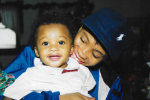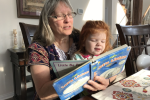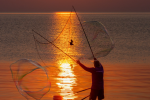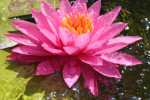The more knowledge we have, the more the soul must grapple with the question of what it all means. We have to ask ourselves how much of what we know is essential, is helpful to the human race, is the path to the happier life. We have to ask ourselves how we’ll live as a result of what we know. The question, “Yes, but what does all this mean to me and thee?” has haunted me since grade school.
The problem with our time, perhaps, is that we have been seduced by facts and data, at the same time, become bereft of wonder. We want to know it all rather than to understand the meaning of it all for the good life here and now.
The universe, however technological it may now be, is still the ultimate mystery, the essential human question, the greatest spiritual revelation.
Everything else is distraction. To know all the elements, all the chemistry of life, is one thing; to know what it means to live a good life—in the midst of the knowledge of what humans can do with them to destroy it—is entirely another.
Immersion in God requires awe of the limitless, care for the particular, faith in the darkness that is light. And yet we insist on obsessing over the minuscule, the petty, the silly, the neurotic, the useless. God save us.
We need to learn to live with the eye of the brain on the probable and the other eye, the eye of the soul, on the wonderful mystery that is the gift of
life.
We may spend our lives poring over minutiae but underneath it all, we are plagued by the great questions of life, not the small ones. Who am I? Where did I come from? Why am I here? Where am I going? If anywhere at all.
SUNDAY, OCTOBER 1: Without a sense of wonder, we may be living but we are not yet completely alive.
MONDAY, OCTOBER 2: It isn’t answers that make life worth living, it is being able to come to a place of spiritual surrender however difficult the questions we face.
TUESDAY, OCTOBER 3: To be in awe of something is a very special state of mind. It teaches us our place in the universe and leaves us more able to honor the place of others, as well. It teaches us that life is really about bigger things than ourselves.
WEDNESDAY, OCTOBER 4: The mysteries of life are not meant to defeat us. They are meant to show us that however dull or dry or difficult life may seem to us at any moment, there is always something beyond it that is more than worth the price of admission. As Thomas Carlyle puts it, “This world, after all our science and sciences, is still a miracle; wonderful, inscrutable, magical and more....”
THURSDAY, OCTOBER 5: It is wonder that leads to knowledge, that drives us to discover, that enables us to decipher the world around us. Knowledge is about what is; wonder is about what may be.
FRIDAY, OCTOBER 6: If we knew everything about everything, there would be no reason to be alive.
SATURDAY, OCTOBER 7: Don’t be discouraged by what you don’t know. In fact, what we don’t know may be one of the only things we really know that is any impetus to tomorrow. “To be conscious that you are ignorant,” Benjamin Disraeli said, “is a great step to knowledge.”
SUNDAY, OCTOBER 8: What we call “knowledge” today is the measure only of what we know now. It is the wisdom to realize that there is always more to learn that makes the human being a growing, living thing. And just as important, perhaps, someone decent to live with!
MONDAY, OCTOBER 9: The value of knowledge is that it is designed to stretch us beyond ourselves and make
us productive members of the human community. To eschew knowledge, to refuse to learn, is to be willing to become a parasite on the human race.
TUESDAY, OCTOBER 10: The sign of real freedom is the willingness of an institution to put no restrictions or limits on learning. “If we value the pursuit of knowledge,” Adlai E. Ste- venson wrote, “we must be free to follow wherever that search may lead us. The free mind is not a barking dog, to be tethered on a ten-foot chain.”
WEDNESDAY, OCTOBER 11: Beware the society that tells you not to learn, not to question, not to grow beyond the limits of the present, not to think. That is a society that uses one part of itself for the benefit of another part of itself. That’s called slavery, no matter who does it.
THURSDAY, OCTOBER 12: The purpose of knowledge is to make the whole world a better place. “If you have knowledge,” Margaret Fuller writes, “let others light their candles at it.”
FRIDAY, OCTOBER 13: “What will learning geometry have to do with the rest of my life?” the student asked. “Not a thing,” the teacher said. “But one thing it will do is to develop a particular part of your brain so that in whatever circumstances you find yourself in life, you will have a wholly developed brain with which to figure it out.”
SATURDAY, OCTOBER 14: When we give ourselves over to Mystery—to what we do clearly see but do not understand—we open ourselves to the notion that possibility—what can be—is more important than certainty about what is.
SUNDAY, OCTOBER 15: One question leads to another, one fact leads to another, one doubt leads to faith in something else. It is what we do not know that enables us, if we will, to discover the rest of life.
MONDAY, OCTOBER 16: “I’m not interested in learning,” is one of the most dangerous remarks in life. It encloses us within ourselves. It drains us of our potential. It leaves us to the mercy of the knowledge of others.
TUESDAY, OCTOBER 17: Facts have little or nothing to do with real knowledge of a thing. Facts only tell us what. Knowledge tells us why and so what. Richard Feynman says it all when he says, “You can know the name of a bird in all the languages of the world, but when you’re finished, you’ll know absolutely nothing whatever about the bird.... I learned very early the difference between knowing the name of something and knowing something.”
WEDNESDAY, OCTOBER 18: Taking an inventory of three things we do not know—like where the stars come from, or how drugs work on the brain, or how whales navigate the seas—is one thing. But knowing the implications of those things for our own life is even more. What if there weren’t stars? What if there weren’t drugs? What if whales couldn’t navigate? Then, what would our own lives be like? Those questions are the difference between fact and wonder.
THURSDAY, OCTOBER 19: Learning something leaves us different than we were before we knew it. Learning is our lifeline to the fullness of ourselves. “We wake, if ever at all,” Annie Dillard writes, “to mystery.”
FRIDAY, OCTOBER 20: To pursue an interest in anything that is independent of our daily lives, our commercial lives, our professional lives takes us into learning for its own sake. Most of all, it opens us to the world of wonders around us, like a child waking up to being alive. “Those who can no longer pause to wonder and stand rapt in awe,” Einstein says, “are as good as dead; their eyes are closed.”
SATURDAY, OCTOBER 21: To learn more about life is to learn more about God.
SUNDAY, OCTOBER 22: If the great Mystery of Life is God, then the more we learn about its little mysteries, the more we know about the God-life itself.
MONDAY, OCTOBER 23: Wonder is God’s way of getting our attention.
TUESDAY, OCTOBER 24: Wonder is not the beginning of doubt. Wonder is the beginning of understanding the things that are really important in life.
WEDNESDAY, OCTOBER 25: We take life for granted. We take the moon for granted. We take rain for granted. We take ourselves for granted. And so we miss the greatest spiritual experience the world has to offer. While we run around doing spiritual things, we miss the spiritual life we’re living. “Earth’s crammed with heaven,” the poet Elizabeth Barrett Browning writes, “And every common bush afire with God: But only he who sees, takes off his shoes/ The rest sit round it, and pluck blackberries.”
THURSDAY, OCTOBER 26: Learning to rest in the cosmic reality that the unknown is as important a gift to our development as the known, is the beginning of the real understanding of life.
FRIDAY, OCTOBER 27: It isn’t so much collecting the beautiful that counts as it is learning to ponder it. Pondering is the point at which we begin to live at the level of the soul rather than at the level of the appetite alone.
SATURDAY, OCTOBER 28: Revel in your questions. Trust them. Follow them. Questions, however heretical they may seem, lead in the end always and only to God.
SUNDAY, OCTOBER 29: Don’t be afraid of what you don’t know. Take it as a sign from God that God is still the one Mystery we are required to trust.
MONDAY, OCTOBER 30: Learning to ask the right questions in life
can be a great deal more important to the country, to the planet, to the church than simply repeating yesterday’s right answers. As Annie Dillard puts it, “We have been as usual asking the wrong question. It does not matter a hoot what the mockingbird on the chimney is singing. The real and proper question is: Why is it beautiful?”
TUESDAY, OCTOBER 31: Be careful lest knowledge delude you into thinking that you know something. As Confucius says:
Those who know not,
and know not that they know not, are fools. Shun them.
Those who know not,
and know that they know not,
are simple. Teach them.
Those who know,
and know not that they know, are asleep. Wake them.
Those who know,
and know that they know, are wise. Follow them.
LET’S SHARE OUR THOUGHTS
The following discussion questions, Scripture echo, journal prompts, and prayer are meant to help you reflect more deeply on The Monastic Way. Choose at least two suggestions and respond to them. You may do it as a personal practice or gather a group interested in sharing the spiritual journey.
DISCUSSION QUESTIONS
1. Sister Joan writes that “we are all plagued by the great questions of life, not the small ones. Who am I? Where did I come from? Why am I here? Where am I going?” As best you can, given the present circumstances of your life, try answering one or two of these great questions of life.
2. Which daily quote in The Monastic Way is most meaningful to you? Why? Do you agree with it? Disagree? Did it inspire you? Challenge you? Raise questions for you?
3. After reading The Monastic Way write one question that you would like to ask the author about this month’s topic.
4. Joan Chittister uses other literature to reinforce and expand her writing. Find another quote, poem, story, song, art piece, novel that echoes the theme of this month’s Monastic Way.
5. Reread the reflection for Thursday, October 13. Have you had this question in any discipline: Why must I study music, art, literature, science, computers, math....? Did putting yourself through the experience change you at all—"given you pause to wonder or stand rapt in awe?” Explain.
JOURNAL PROMPTS
Prompt 1: Here are a few statements from this month’s Monastic Way. Choose one that is most helpful to you and journal with it.
It isn’t answers that make life worth living, it is being able to come to a place of spiritual surrender however difficult the questions we face.
It is what we do not know that enables us, if we will, to discover the rest of life.
Be careful lest knowledge delude you into thinking that you know something.
Prompt 2: Spend a few minutes with this photograph and journal about its relationship to this month’s Monastic Way. You can do that with prose or a poem or a song or....
SCRIPTURE ECHO
“Blessed is your name, O God, for all wisdom belongs to you. You change the procession of times and seasons; you give wisdom to the wise, and knowledge to those who understand. You reveal the deep and hidden mysteries; you know what lies in darkness, for all light dwells within you.” —Daniel 2:20-22
What mysteries spark a sense of wonder and awe in you?
PRAYER
We are dust and stardust, made in your image. We are part of the creation you are making new. Let our awe increase, like your ever-expending universe, until we find ourselves lost in wonder, love, and praise, through Jesus Christ, the Alpha and the Omega. Amen. —The Book of Common Worship

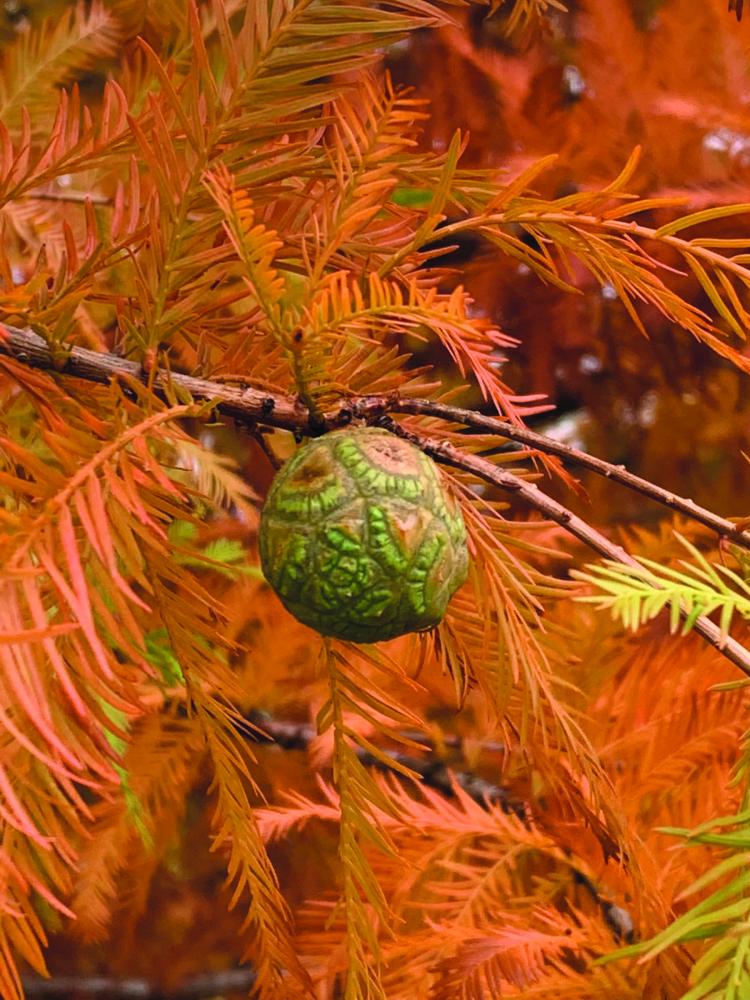 Artwork: by Susan Doubet, OSB
Artwork: by Susan Doubet, OSB
